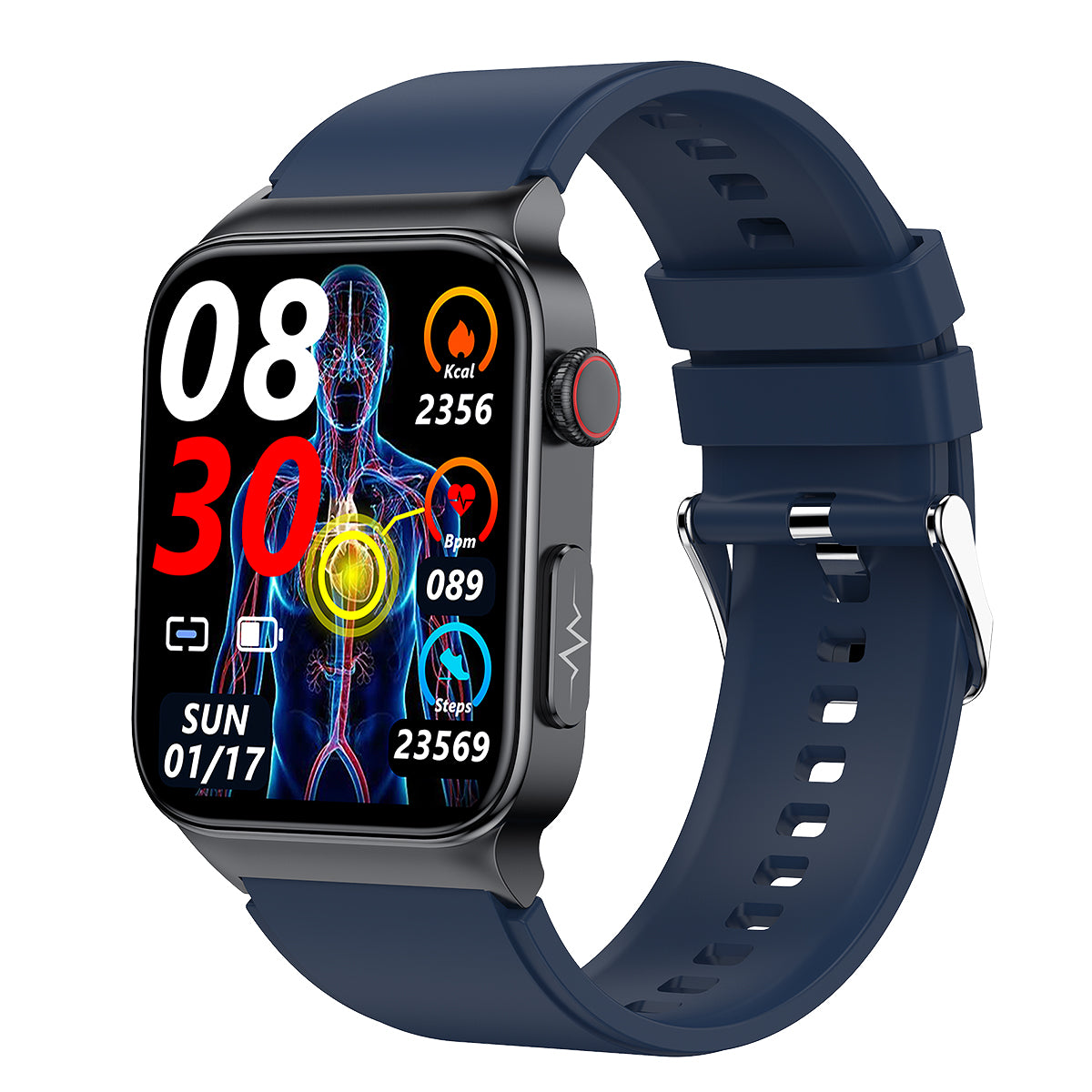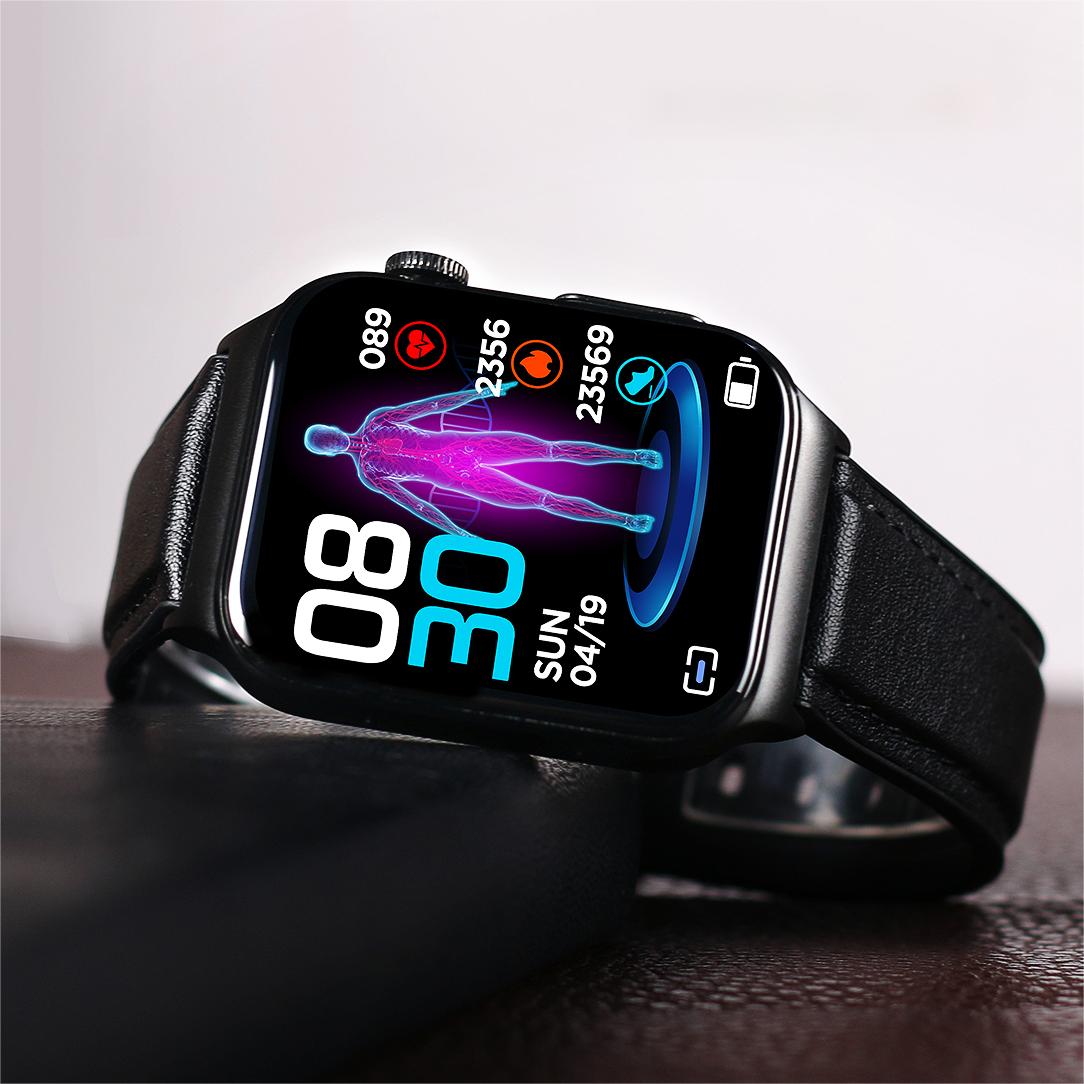What is Considered a Healthy Resting Heart Rate?
Your heart is a remarkable organ, tirelessly pumping blood throughout your body, ensuring the delivery of essential nutrients and oxygen. Your heart rate, or the number of times your heart beats per minute, is a crucial indicator of your cardiovascular health. A healthy resting heart rate is a key marker of overall well-being and fitness. In this blog post, we'll explore what is considered a healthy resting heart rate, factors that influence it, and how to maintain or improve it.
Understanding Resting Heart Rate
Your resting heart rate (RHR) is the number of heartbeats per minute when you're at complete rest, typically measured when you wake up in the morning or when you're relaxed and seated. It provides insights into how efficiently your heart is working to meet your body's needs when you're not physically active.
What is Considered Healthy?
The definition of a healthy RHR can vary depending on factors like age, fitness level, and individual health conditions. However, in general, a lower RHR is associated with better cardiovascular fitness and overall health.
For adults, a typical healthy resting heart rate range is between 60 and 100 beats per minute (bpm). However, many consider an RHR between 60 and 80 bpm to be ideal. Athletes and highly trained individuals may have even lower RHRs, often below 60 bpm, due to their cardiovascular conditioning.
Factors That Influence Resting Heart Rate
Several factors can influence your RHR:
-
Fitness Level: Regular exercise and cardiovascular fitness can lower your RHR by making your heart more efficient at pumping blood.
-
Age: RHR tends to decrease as you age. Infants and children have higher RHRs than adults, while older adults may have RHRs at the lower end of the healthy range.
-
Gender: On average, women tend to have slightly higher RHRs than men.
-
Stress and Anxiety: Stress and anxiety can temporarily elevate your RHR. Practicing relaxation techniques can help lower it.
-
Medications and Health Conditions: Certain medications and medical conditions, such as thyroid disorders, can affect your RHR.
Maintaining or Improving Your RHR
If you'd like to maintain or improve your resting heart rate, consider the following tips:
-
Regular Exercise: Engage in cardiovascular exercises like running, swimming, or cycling to improve your cardiovascular fitness and lower your RHR.
-
Healthy Diet: Eat a balanced diet rich in fruits, vegetables, and whole grains to support heart health.
-
Stress Management: Practice stress-reduction techniques like meditation or deep breathing exercises.
-
Adequate Sleep: Ensure you get enough quality sleep, as sleep deprivation can elevate your RHR.
-
Hydration: Stay well-hydrated, as dehydration can lead to an elevated heart rate.
A healthy resting heart rate is a valuable indicator of your cardiovascular fitness and overall well-being. While individual factors can influence what's considered healthy, maintaining a lower RHR through regular exercise, a balanced diet, and stress management can contribute to a healthier heart and a better quality of life. Monitoring your RHR can be a proactive step in managing your health and fitness goals. If you have concerns about your RHR, consult a healthcare professional for personalized guidance and recommendations.
Continuing our journey towards holistic health and well-being, we introduce the BP Doctor Non-invasive Blood Glucose ECG and PPG Smartwatch - the ECG5. This remarkable wearable seamlessly integrates the latest health-monitoring technologies, ensuring that you're always in control of your health and fitness, just as you are with your resting heart rate.
Blood Glucose Monitoring: In harmony with our exploration of resting heart rate and cardiovascular health, the ECG5 brings an additional dimension to your well-being - blood glucose monitoring. Keep a close eye on your blood glucose levels, an essential aspect of managing your overall health.
Body Temperature Monitoring: Your body's temperature can provide vital insights into your health. The ECG5 offers precise body temperature monitoring, enabling you to track variations that may indicate changes in your well-being.
Heart Rate, Blood Oxygen, and Blood Pressure Monitoring: The core of your health lies in your cardiovascular system. The ECG5 ensures that you have real-time data on your heart rate, blood oxygen levels, and blood pressure, allowing you to make informed decisions about your health.
Multiple Exercise Modes: As we discussed in our previous blog post, regular exercise is essential for maintaining a healthy resting heart rate. The ECG5 supports your active lifestyle with multiple exercise modes tailored to your preferences.
Exercise Pedometer and Calorie Tracking: Stay motivated with detailed exercise data, including step counts and calorie burn, helping you reach your fitness goals.
Sleep Monitoring: Quality sleep is crucial for overall well-being and managing your resting heart rate. The ECG5 monitors your sleep patterns, providing insights to optimize your sleep quality.
ECG and HRV Monitoring: Taking heart rate monitoring to the next level, the ECG5 offers ECG and HRV monitoring in four different modes. Whether you prefer the convenience of wearing the watch or opt for chest stickers, an ECG belt, or hand-held ECG, the ECG5 ensures you have access to accurate heart rate data for a holistic understanding of your cardiovascular health.
Your well-being is a multifaceted journey, and the BP Doctor ECG5 Smartwatch is your trusted companion. Just as we explore the interconnectedness of health and heart rate, the ECG5 combines cutting-edge technologies to empower you in managing your health comprehensively. Elevate your wellness journey with the ECG5 by your side, where technology and well-being converge to enhance your life in every way.










